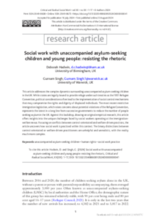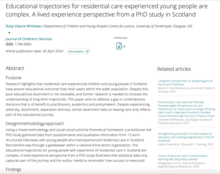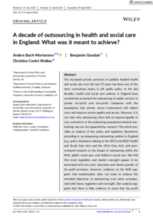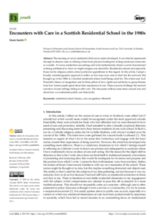Displaying 61 - 70 of 1185
The aim of this review is to articulate the key mechanisms through which shared decision-making meetings can work to help keep children safely out of care and at home. Data from the literature was supplemented with consultation to ensure relevance to the UK setting.
Historical discrimination, reduced resources, cultural misunderstandings, and legal uncertainties create a challenging environment for migrant families
This article addresses the complex dynamics surrounding unaccompanied asylum-seeking children in the UK.
This is the Council of the European Union's Conclusions on the update of the EU Guidelines on Children and Armed Conflict, as approved by the Council at its 4038th meeting, held on 24 June 2024.
Originally published in 2018 and updated in 2024 defines the EU’s global approach to protecting children affected by wars. These guidelines are intended to serve as a practical tool to direct and assist EU actors throughout the world in their work on children and armed conflict, including other situations of armed violence by state and non-state actors, such as terrorist organisations and organised criminal groups.
A nun and care worker who abused vulnerable children at a Scottish orphanage have had their three-year prison sentences quashed.
Charities say FoI disclosure that 369 such children were held over 21-month period is ‘hugely concerning’.
Research highlights that residential care experienced children and young people in Scotland have poorer educational outcomes than their peers within the wider population. Despite experiencing adversity, attachment, separation and loss, school attainment data on leaving care only reflects part of the educational journey. This paper aims to address a gap in contemporary literature that is of benefit to practitioners, academics and policymakers.
This article provides an analysis of key policy and regulatory documents preceding or accompanying outsourcing policies in England (e.g., policy document relating to the 2012 and 2022 Health and Social Care Acts and the 2014 Care Act), and peer reviewed research on the impact of outsourcing within the NHS, adult's social care, and children's social care.
In this article, the author adopts a broadly autoethnographic approach to reflect on how boys (now men in their late 40s and early 50s) brought up in the 1980s in a Scottish residential school recall being cared for.







